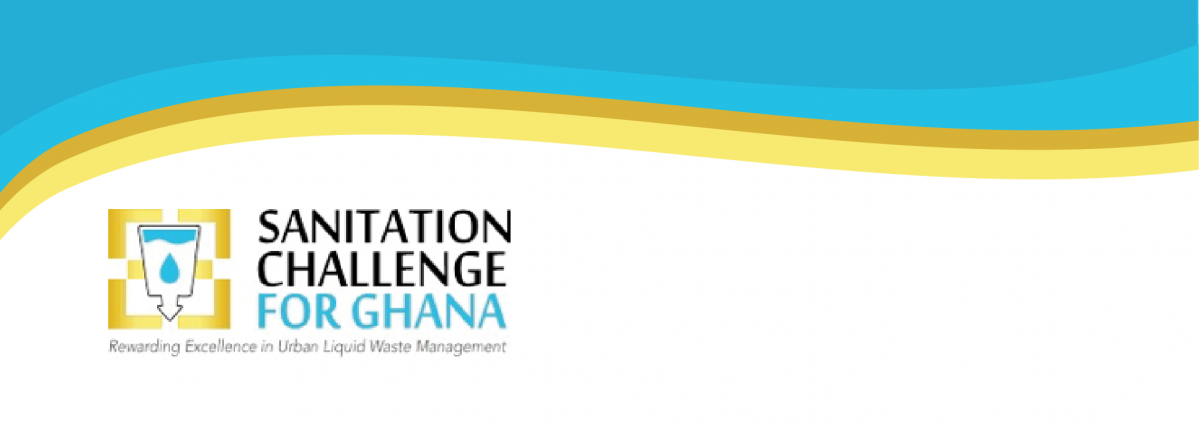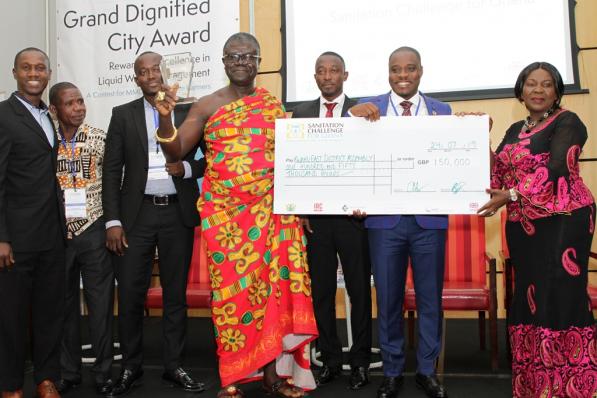
Lessons from the Sanitation Challenge for Ghana have been shared in a report and animation.
Published on: 11/05/2020
In order to put sanitation on the agenda in Ghana and encourage local politicians to prioritise and invest in sanitation, the Sanitation Challenge for Ghana (SC4G) was launched in 2015 and ended in July 2019 with nine winners rewarded. It was an innovation programme motivating Metropolitan, Municipal and District Assemblies (MMDAs) to team up with their citizens, innovators and solvers to design and then implement their own liquid waste management strategies.
Using an inducement prize mechanism the SC4G focused on bringing transformational change in sanitation service delivery to poor households in urban centres.
This short animation explains the SC4G and its outcomes:
The SC4G was set up under the UK Aid-funded Ideas to Impact programme. They design and run innovation prizes to incentivise contestants to find solutions to challenges faced by the poor in low-income countries. These include access to clean energy, water and sanitation, transport and climate change adaptation, in Africa and South Asia. The programme tests the value of prizes as a non-traditional mechanism to spur behaviour change and socioeconomic development.
The SC4G was delivered by IMC Worldwide with IRC Ghana as the local implementing agent and Maple Consult providing technical inputs. It was designed by Trémolet Consulting. The evaluation was conducted by Itad. The programme’s evaluators at Itad are supporting Ideas to Impact to understand if such prizes worked as intended, and when and where they could be useful as a funding mechanism for international development, compared to other forms of funding, such as grants.
Nine MMDAs won the competition based on independent verification of participants’ work and assessment by a panel of judges. Initiatives ranged from providing toilets in markets and schools to raising awareness of the importance of sanitation among communities. One of the winners rehabilitated a sewage treatment pond, used it to rear fish on a commercial scale and has been using this revenue to fund the facility’s maintenance.

Kwahu East receiving the 2nd place award for in the District Assembly category of the Challenge - for their innovative commitment to the sanitation value chain and strong leadership commitment in the implementation of the liquid waste management strategy.
The SC4G evaluation report explored what happened when Ideas to Impact tried using prizes in Ghana to improve sanitation to benefit especially the poor. Four key lessons emerged:
Download the final evaluation report below.